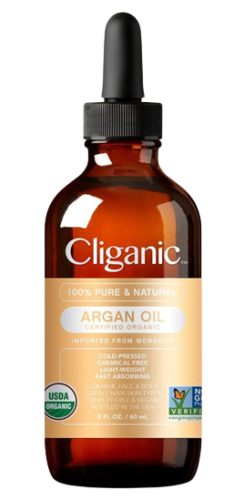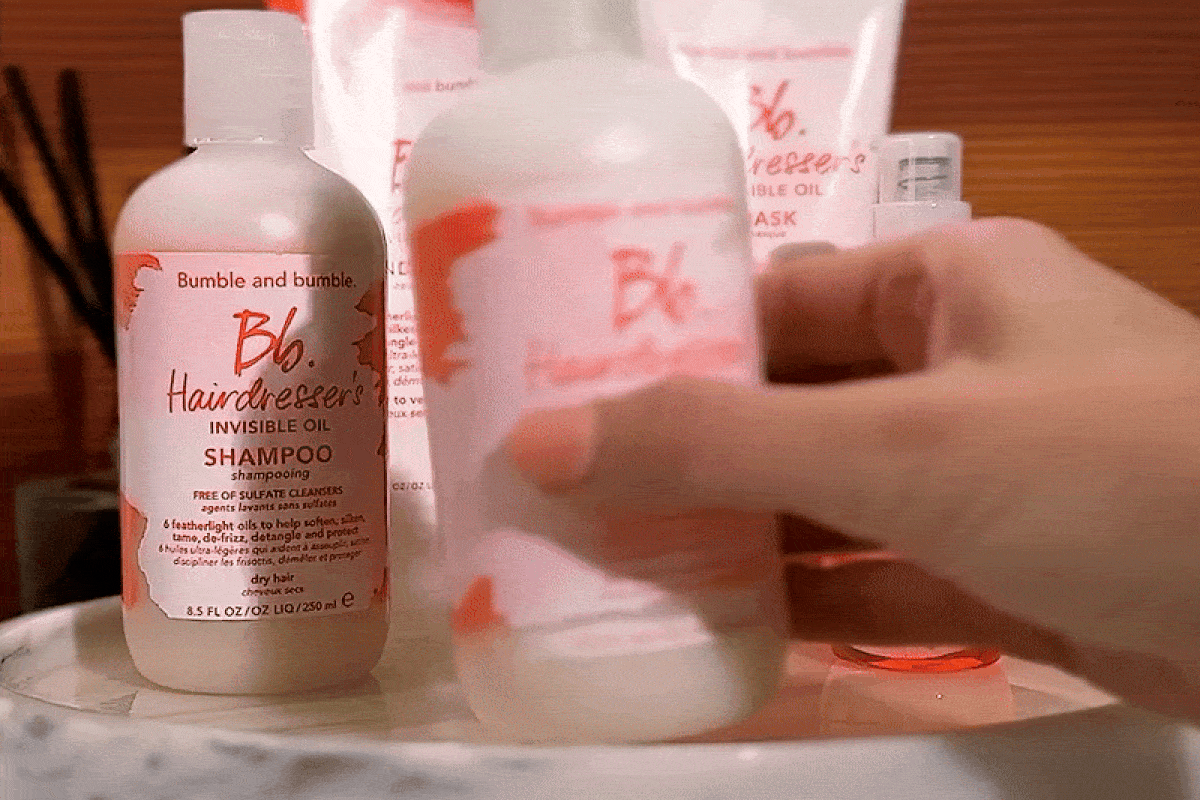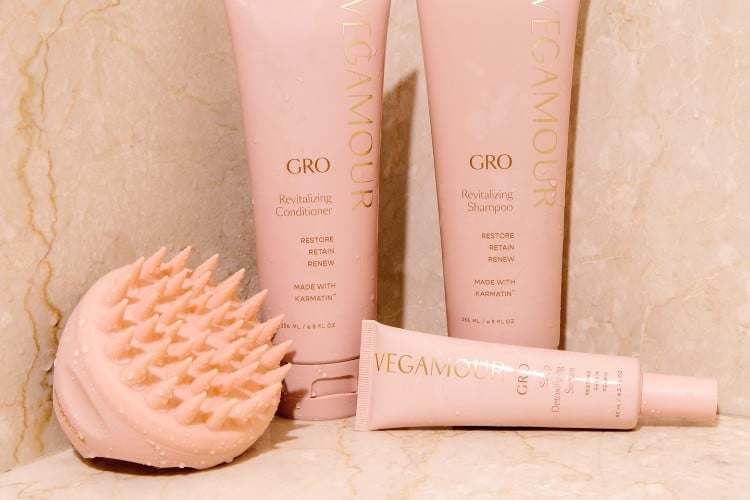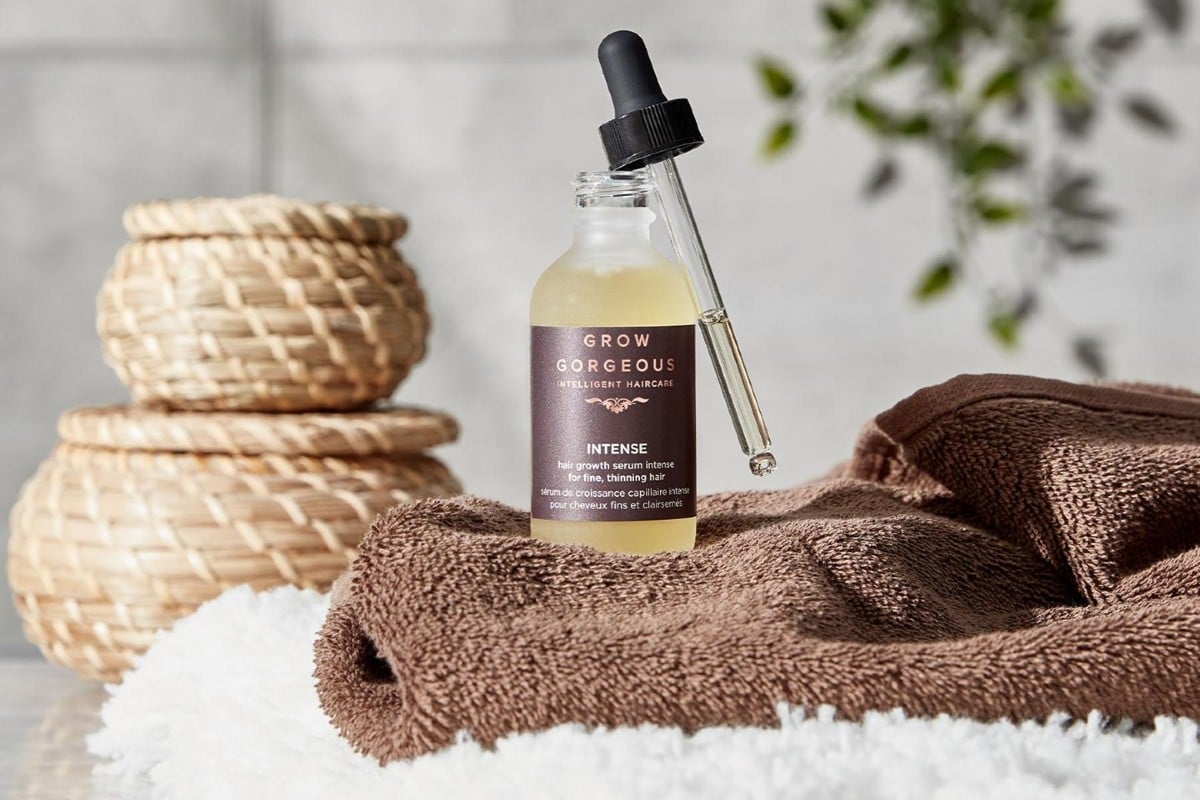Does liquid gold sound familiar to you? That’s how most people refer to argan oil, and I honestly couldn’t think of a better name. This multi-purpose oil has been a staple in personal care for centuries and is renowned for its hydrating and beautifying properties. But did you know that argan oil can also help your hair grow healthier? While there isn’t enough scientific evidence to support this age-old remedy, most people swear by its ability to strengthen and moisturize hair. And rightfully so. I can’t be the only one who noticed a dramatic improvement in hair quality after using argan oil, right? That’s because it really makes your hair appear more nourished. After reading this article, you’ll get to know why.
What is argan oil?
Argan oil is prepared from the fresh kernels of the argan tree (Argania spinosa), native to southwest Morocco. It’s composed of unsaturated (80%) and saturated (20%) fatty acids, and it contains polyphenols and tocopherols (antioxidants). Due to its high levels of fatty acids and antioxidants, this nourishing oil is great for softening, revitalizing, and hydrating hair, while doing double duty to protect scalp follicles. Argan oil has gone from a regular ingredient to a highly valued oil in the cosmetics industry, earning the title of “the world’s most expensive vegetable oil.”
How argan oil can improve hair growth
Hair may be thin for countless reasons, but one thing is for sure: In order to be strong and less prone to breakage, your hair needs nourishment, protection, and hydration. And yes, argan oil provides all of that.
Moisturizes
You have nothing to win with dry hair—that’s something we all agree on. Not only does it look dull and hard to style, but it can also break easily. Keeping your hair moisturized is essential for healthy growth, and argan oil is just the solution you need. Thanks to its rich fatty acid content, it has the ability to lubricate the hair shaft and maintain optimal scalp moisture levels. In fact, linoleic and oleic acids are the main components of argan oil that contribute to its rich moisturizing properties.[1]
Reduces oxidative damage to hair follicles
Argan oil is very rich in tocopherols and polyphenols, which are powerful antioxidants that protect hair from damage.
Antioxidants are well known to neutralize free radicals—highly reactive molecules that can cause oxidative stress. Studies found that oxidative stress can disrupt hair growth cycling and lead to premature follicle aging, which often manifests as a decrease in hair production.[2]
You probably are exposed to harmful molecules every day: sun exposure, smoking, and pollution are all sources of free radicals. All these can have a negative impact on your hair health if you don’t keep up with antioxidants. Applying argan oil can strengthen the hair’s defense system to be better equipped to reduce follicle damage.[3]
Provides anti-inflammatory benefits
Tocopherol, a key component of argan oil, can help relieve inflammation, which is a common cause of conditions such as dandruff, psoriasis, hair loss, and seborrheic dermatitis. With its inflammation-fighting abilities, argan oil is like a soothing balm for the scalp, helping to promote healthy hair growth from the inside out.[4]
Nourishes and protects against hair breakage
Thanks to linoleic acid, oleic acid, and vitamin E, argan oil adds a protective layer to the hair to protect it from breakage and reduce split ends.
How to use argan oil for hair
To reap the benefits of argan oil for hair, you can either directly apply it to your scalp as a leave-in treatment or mix it with your shampoo.
- Apply 8 to 10 drops of argan oil to damp or dry hair and gently massage it on your scalp for about 10 minutes
- Make sure your hair is covered from roots to ends
- Wrap your hair in a towel and leave it on for the night
- Wash your hair in the morning
Luca Santangelo shows how to oil your hair correctly, watch out his video:
You can also include argan oil in your shampoo or conditioner. Pour shampoo into your palm, add 1-2 drops of argan oil, and rub your hands until they get mixed. Apply it to your hair, wash it, and rinse as usual.
Watch out for these to make sure you’re buying the best quality argan oil
When it comes to purchasing argan oil, two crucial questions come to mind: Is the oil 100% pure, or has it been mixed with inferior oils? And secondly, how can you tell if you’re buying high-quality argan oil? These questions are seriously important since they can impact the effectiveness of argan oil. Therefore, it’s essential to know precisely what you’re buying before making a purchase. Here’s everything you need to know:
Purity
It’s evident that the best hair growth-stimulating benefits of argan oil come from its 100% pure form. Any blending with other oils may compromise its effectiveness. When it comes to purity, genuine argan oil should have a light to golden yellow hue. If the oil seems too light, it may be diluted with other oils. Apart from the purity factor, it’s crucial to select a product that is free from chemicals, artificial additives, and unnecessary fillers that can lower the quality and safety of the oil.
Extraction method
The extraction method is another factor that affects the quality of argan oil. Pick cold-pressed oil because it ensures all of the compounds—those essential fatty acids, minerals, and vitamins—stay in their purest and most effective form to bring your hair the best benefits. Also, because the light can degrade the active compounds in argan oil, pick products in dark glass bottles and store them in a dark place. That should do it.
Do you have to dilute argan oil with another carrier oil?
Not necessarily. Pure argan oil is safe to use alone on the scalp. However, blending it with other carrier oils for hair growth, like castor, coconut, almond, and jojoba, can boost the results. Don’t be afraid to experiment with different combinations to find the perfect blend for your hair.
Argan oil side effects
Since it’s a natural compound, argan oil has minimal side effects. In rare cases, it can cause a form of allergy known as contact dermatitis, identified by itchiness and redness of the scalp. Also, because argan oil is extracted from tree nuts, you should not use it if you have nut allergies.
What we recommend
Cliganic Argan Oil
It’s USDA organic certified, meaning it met strict standards for extracting and processing the argan oil, 100% pure, cold-pressed, and chemical-free, and comes in a premium bottle that’ll keep oil proprieties to their peak potency. You can’t ask for a better product.

Footnotes
At Women’s Concepts, we’re committed to bringing you the best advice for your haircare needs. We rely on reliable sources such as dermatologists’ insights, clinical trials, and scientific journals to ensure our recommendations are based on facts, not hype. Our editorial policy ensures that all statements and claims have clear and legitimate references. Read our editorial policy to learn more about our sources of information, our process of researching and fact-checking the content, and how our team strives to keep all articles updated.
- Charrouf, Zoubida & Guillaume, Dominique. (2008). Argan oil: Occurrence, composition and impact on human health. European Journal of Lipid Science and Technology. 110. 632 – 636.
- Trüeb RM. Oxidative stress in ageing of hair. Int J Trichology. 2009 Jan;1(1):6-14. doi: 10.4103/0974-7753.51923. PMID: 20805969.
- Bakour M, Soulo N, Hammas N, Fatemi HE, Aboulghazi A, Taroq A, Abdellaoui A, Al-Waili N, Lyoussi B. The Antioxidant Content and Protective Effect of Argan Oil and Syzygium aromaticum Essential Oil in Hydrogen Peroxide-Induced Biochemical and Histological Changes. Int J Mol Sci. 2018 Feb 18;19(2):610. doi: 10.3390/ijms19020610. PMID: 29463041; PMCID: PMC5855832.
- Reiter E, Jiang Q, Christen S. Anti-inflammatory properties of alpha- and gamma-tocopherol. Mol Aspects Med. 2007 Oct-Dec;28(5-6):668-91. doi: 10.1016/j.mam.2007.01.003. Epub 2007 Jan 11. PMID: 17316780.





